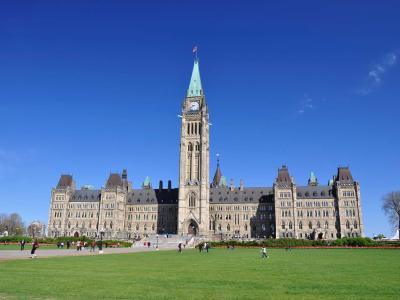A new Probe Research survey for the Free Press finds that the cost of living and Canada-U.S. relations are the two most critical issues for Manitobans in this federal election campaign. About one-third of Manitobans rank these as the issues most important to them. But about one in five rank health care and the state of the economy as concerns driving their vote choice.
Meanwhile, more than one in 10 rate crime/public safety, taxes and the cost and availability of housing as key campaign issues.
Climate change and the environment is a relatively low concern, with fewer than one in 10 ranking it as the most important issue.
Older Manitobans and Liberal voters are much more likely to see Canada-U.S. relations and the threat of tariffs as their key issue. Younger Manitobans are more worried about pocketbook issues – the cost of living, housing and jobs.
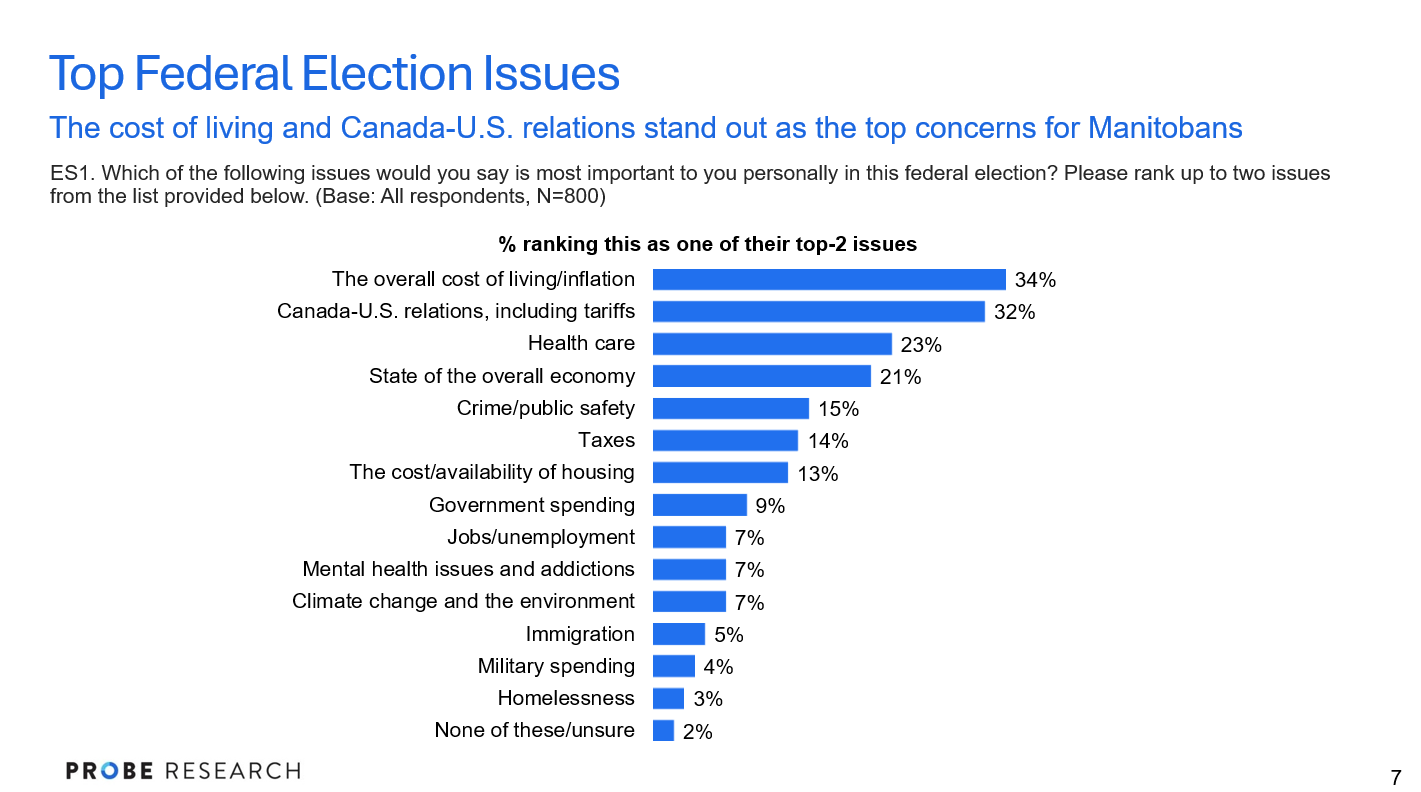
Expanding the Port of Churchill for resource exports and improving downtown Winnipeg safety are the two most important Manitoba-specific issues to voters. One-quarter of Manitobans chose each of these as their top priority for the province.
Slightly more than one in 10, meanwhile, say providing financial assistance to those affected by tariffs and fully funding Winnipeg’s wastewater treatment plant are key election issues for the province. Only four per cent think moving rail lines outside Winnipeg is a priority, while one in five do not rate any of these Manitoba-specific issues as a concern.
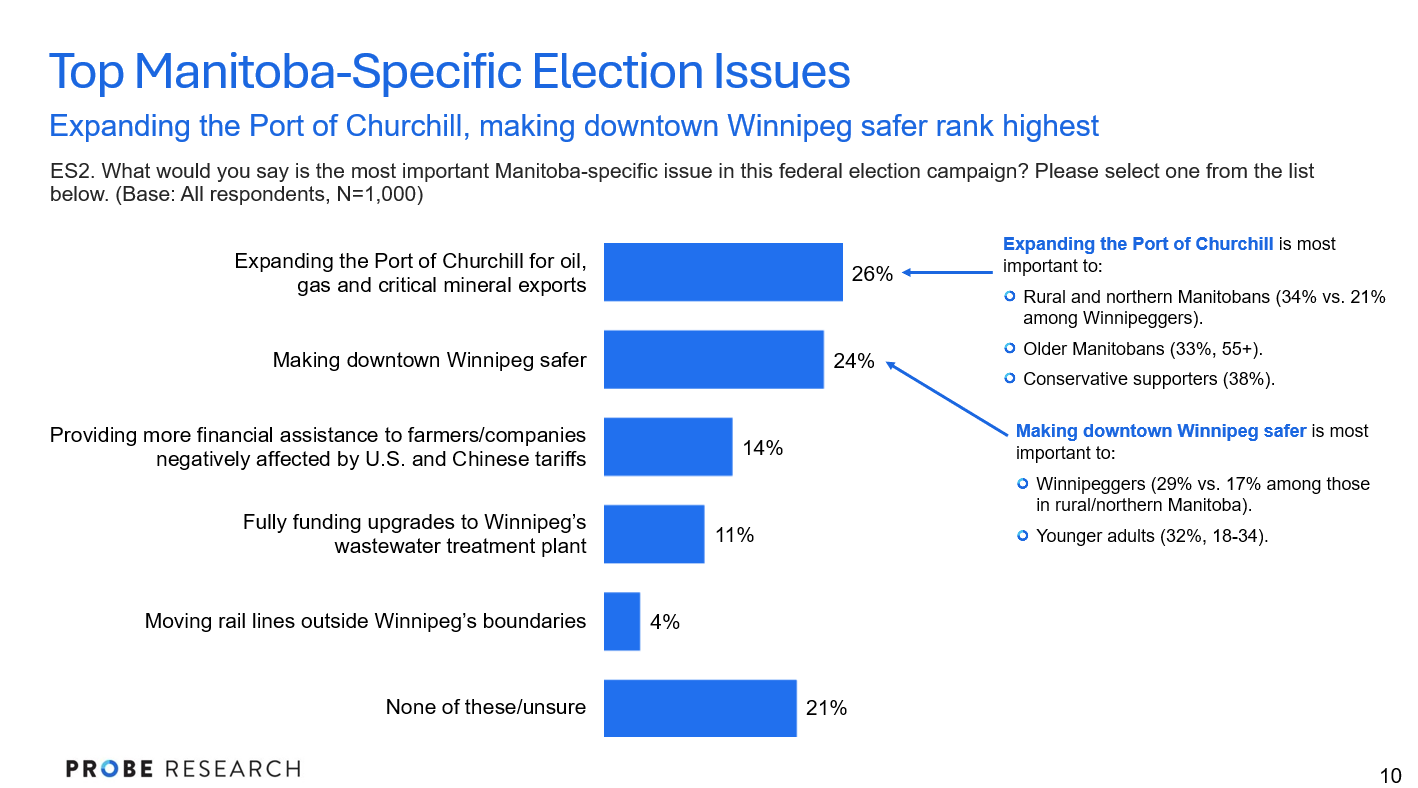
Mark Carney and the Liberals are viewed as best suited to address Canada-U.S. relations and the economy, but Pierre Poilievre and the Conservatives are seen as best able to handle pocketbook issues, public safety and taxation. Carney and the Liberals have an overwhelming edge among Manitobans on Canada-U.S. relations and are viewed as being slightly better than the Conservatives on managing the economy. Poilievre and the Conservatives are slightly more likely than Carney and the Liberals to be seen as best suited to address the cost of living (38% vs. 33%). Poilievre and the Conservatives have more of an edge when it comes to other less salient issues, including public safety, taxes and the cost of housing.
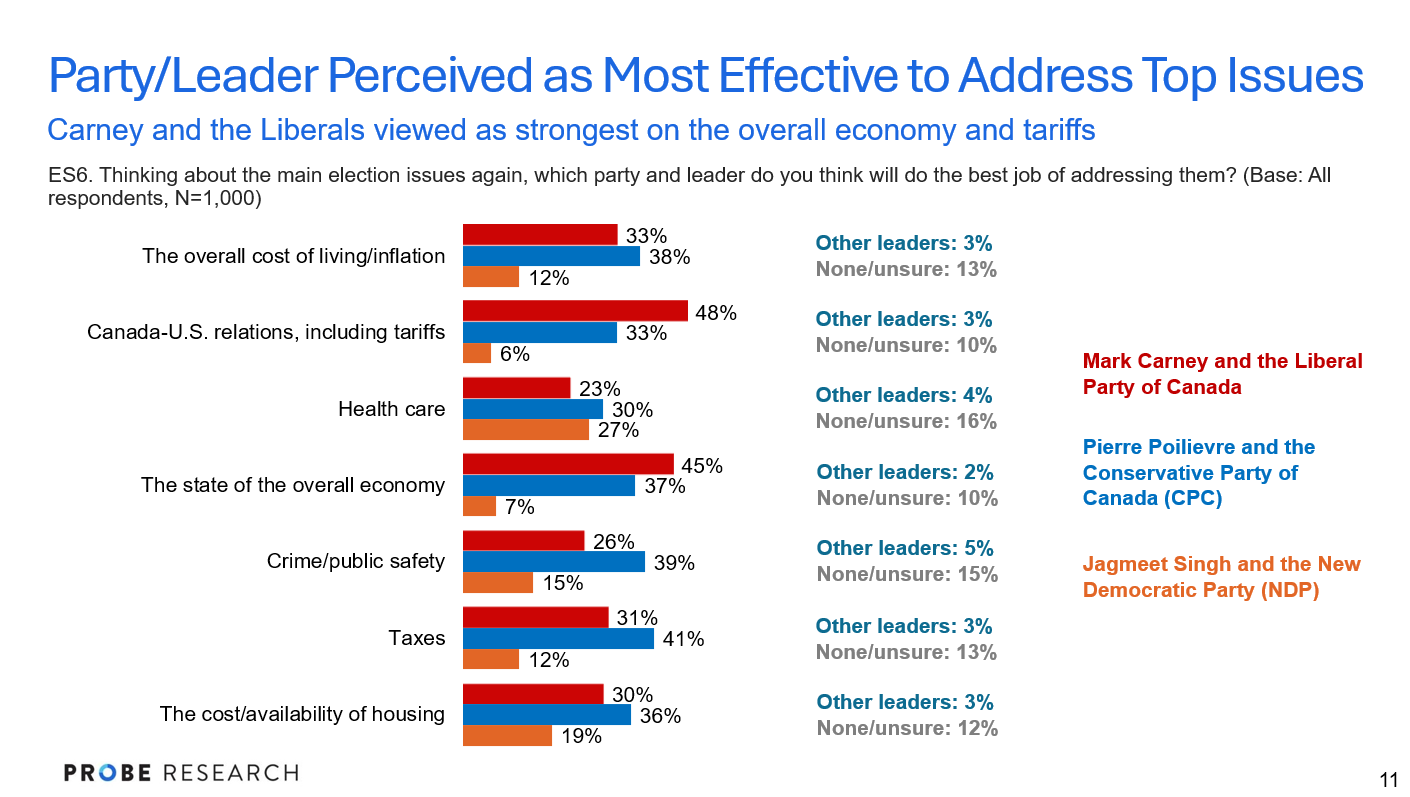
On key Manitoba issues, Poilievre and the Conservatives are viewed as better able to expand the Port of Churchill and make downtown Winnipeg safer. Significant numbers of Manitobans, however, are unable to determine which party and leader will do the best job of dealing with these issues.
Voting Intentions
The Liberals continue to hold a slight edge over the Conservatives province-wide, with NDP support rebounding slightly during the campaign. Forty-three per cent of Manitoba voters plan to cast a ballot for the Liberals (-1% vs. March), compared to 40 per cent for the Conservatives (-2%). Support for the NDP, meanwhile, has rebounded from a low of nine per cent in March to 15 per cent today. Overall, seven per cent of Manitobans are undecided.
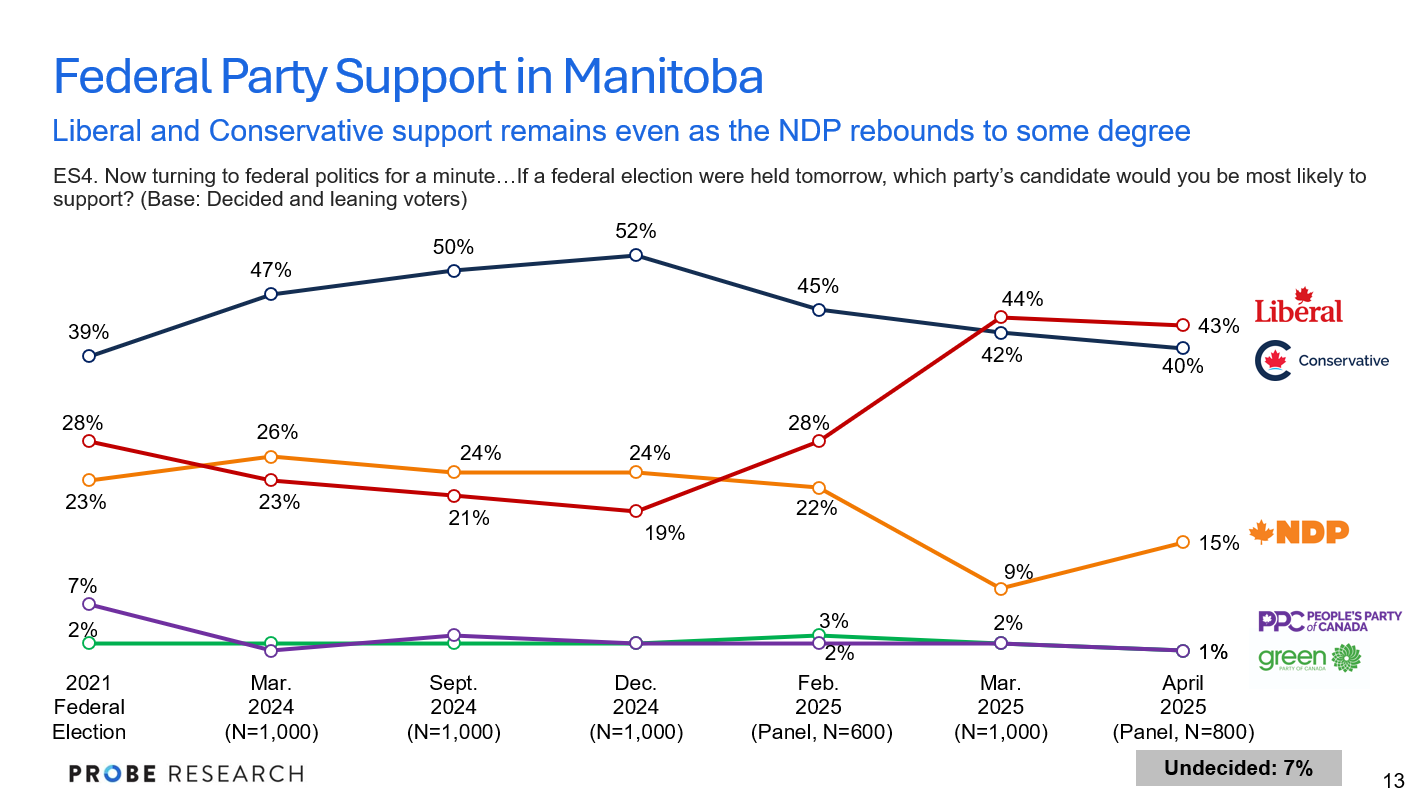
In Winnipeg, the Liberals continue to hold a large lead (50%, -4% vs. March), with Conservative support within Winnipeg virtually unchanged (32%, -1%) and the NDP returning to more competitive levels (16%, +7%), particularly in areas where it is fighting to retain seats.
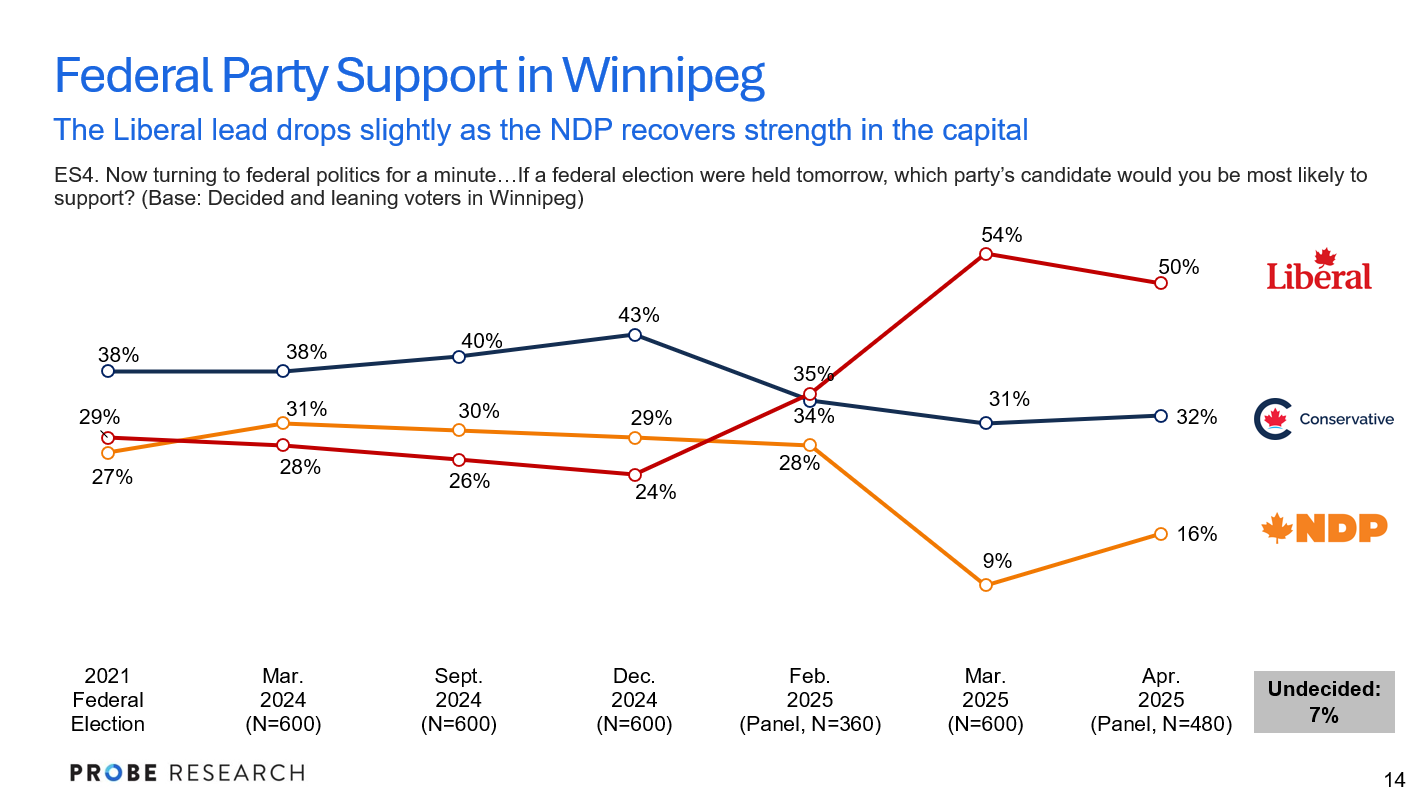
Outside Winnipeg, Conservative support has decreased slightly (54%, -4%), but the party retains its historic advantage over the Liberals (32%, +2%) and the NDP (12%, +3%).
The Story...
The federal New Democratic Party (NDP) may be able to retain some seats in Manitoba after all.
With just a few days to go left in the campaign, there is a silver lining in what has been a dismal campaign for Canada’s NDP. Support for the party in Manitoba has recovered slightly over the past few weeks.
While the party trails far behind the Liberals and Conservatives, the NDP may be in a stronger position to defend its three seats in the province, including Elmwood-Transcona, Winnipeg Centre and Churchill-Keewatinook Aski. With the NDP at risk of losing many seats elsewhere, retaining a Manitoba beachhead could be very important as the party seeks to rebuild following a difficult campaign.
While Pierre Poilievre and the Conservatives are viewed as the right party to address some voter concerns, Mark Carney and the Liberals are seen as much stronger on one of two issues that matter most – dealing with the U.S.
The threat of U.S. tariffs and how to navigate a world where Donald Trump is president again has become one of the major issues in the past few months. Unfortunately for the Conservatives, this concern – which preoccupies older and more affluent Manitobans in particular – is where the Liberals are seen to have an edge.
Poilievre and the Conservatives are slightly more likely to be viewed as having better solutions on the cost of living and housing – and much more likely to be viewed as better to fix lower-tier issues such as taxes and crime. But the CPC does not have enough of an edge on the dominant issue of Trump and tariffs.
Disclosure Statement
Probe Research is a member of the Canadian Research Insights Council (CRIC) and confirms that this research fully complies with all CRIC Standards including the CRIC Public Opinion Research Standards and Disclosure Requirements. Learn more at: https://www.canadianresearchinsightscouncil.ca/standards/por/
Methodology
Probe Research surveyed a representative sample of 800 adults residing in Manitoba from April 8 and 14, 2025. Those who responded to the online survey are members of Probe Research’s proprietary panel, as well as members of another national online panel.
Because an online panel is a non-probability sample, no margin of error can be ascribed. For the purposes of comparison, a probabilistic sample of N=800 Manitoba adults would have a margin of error of ± 3.5 percentage points, 19 times out of 20. The margin of error would also be higher within each of the survey’s population sub-groups.
Minor statistical weighting by age, region, gender and educational attainment was applied to this sample to ensure it properly reflects the known attributes of the province’s population. Probe used SPSS software to conduct the statistical analysis.
The survey questions were designed and paid for by Probe Research, in partnership with the Free Press.


